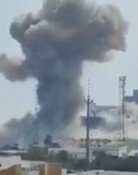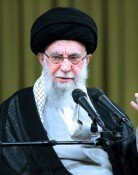The Odd Couple
The civil-military joint investigation team and the Journalists Association of (South) Korea, the National Union of Media Workers, and the (South) Korea Producers and Directors Association will hold a heated debate on the sinking of the naval warship Cheonan. Though the three trade groups include grand words such as Korea or national in their names, they do not represent all journalists, media workers and producers. Accordingly, not all media have raised suspicions over the case. The three groups raised 18 suspicions at a news conference, to which the Defense Ministry proposed a debate in response. The groups then accepted this proposal.
There is something I cannot understand in the announcement by the investigation team. Since certain journalists and the (South) Korean people have suspicions, we announced 18 questions, said Roh Jong-myeon, a review member of the three groups and a member of the media workers union. If the Defense Ministry makes an acceptable explanation in the debate, we will accept. Ministry spokesman Won Tae-jae said, Well release what we know and explain things that are suspected but have no evidence. Well explain things in a comprehensible way to someone with rational and reasonable judgment ability unless he or she is determined not to believe anything in the first place.
In the 1991 Persian Gulf War, the U.S. media and military repeatedly cooperated with and fought each other. Frank Aukofer said such a relationship harmed U.S. national interests in his book Americas Team: The Odd Couple in 1995. Media censorship is no longer possible. What is most important, however, is the national interest, so the military involved in operations must make principles on media reporting in case of emergency with media, he wrote. The military and media should not be too close, but if they are too far away, they will likely end up as an odd couple. In the 2003 U.S. invasion of Iraq, embedded journalism that attached reporters to military combat units was introduced.
Many rumors have sprang up over North Korea`s sinking of the Cheonan. Journalists covering the Defense Ministry verified suspicions relatively easily because of their constant communication with the military, but those who had no access to reported rumors aggravated the situation. Hopefully, this debate, which could be aired on TV, can serve as an opportunity to lower suspicions. Just as the U.S. odd couple produced a gentlemens agreement, some say South Korea needs to make journalistic principles in case of emergency under the aggressive leadership of media and the military.
Editorial Writer Lee Jeong-hoon (hoon@donga.com)



![[단독]폴란드, 韓 해군 최초 잠수함 ‘장보고함’ 무상 양도 안받기로](https://dimg.donga.com/c/138/175/90/1/wps/NEWS/IMAGE/2026/02/27/133437397.1.jpg)



